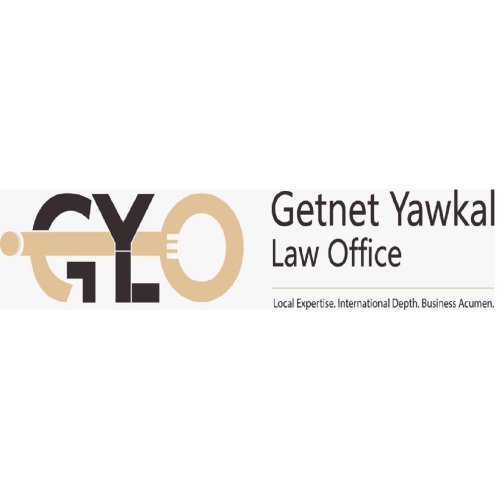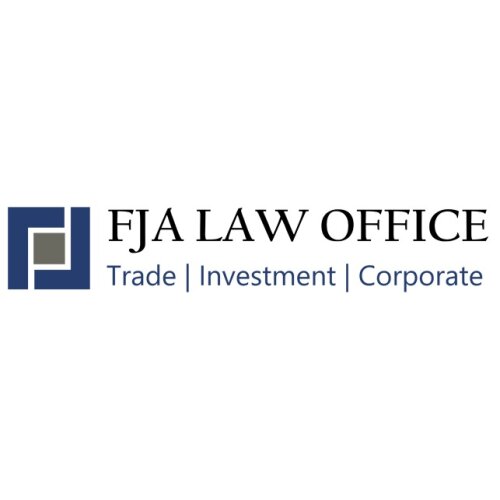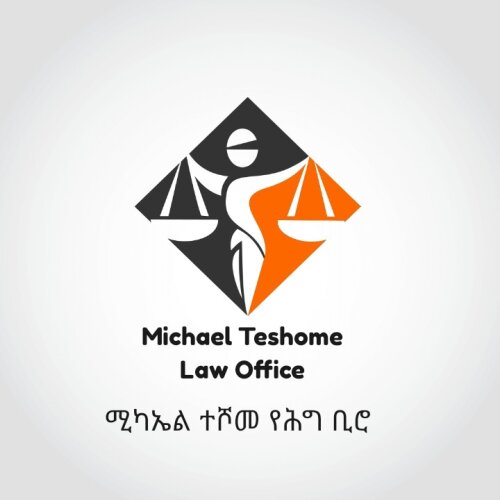Best Tax Increment Financing Lawyers in Ethiopia
Share your needs with us, get contacted by law firms.
Free. Takes 2 min.
Or refine your search by selecting a city:
List of the best lawyers in Ethiopia
About Tax Increment Financing Law in Ethiopia
Tax Increment Financing (TIF) is an economic development tool primarily used by municipalities to encourage growth in designated areas. Although not as established as in some Western countries, Ethiopia has increasingly begun exploring TIF as a method to fund infrastructure improvements and stimulate urban renewal. In Ethiopia, TIF is structured around the capture of future tax benefits that result from new developments, and these captured values are used to finance the initial infrastructure costs. It is seen as a mechanism to spur private investment while minimizing reliance on current tax revenue or government expenditure.
Why You May Need a Lawyer
Understanding and navigating the complexities of Tax Increment Financing in Ethiopia can be challenging. Common situations where legal help might be required include:
- Setting up a TIF district: Legal advice is crucial in understanding the eligibility criteria and procedural requirements for setting up a TIF district.
- Negotiating agreements: When collaborating with local government and private entities, legal expertise is needed to draft and negotiate development agreements.
- Compliance issues: Ensuring all actions comply with local, regional, and national laws is critical to avoid legal penalties.
- Resolving disputes: Lawyers can help resolve disputes between stakeholders, such as disagreements over tax assessments or the fulfilment of development conditions.
- Financial structuring: Legal assistance is often required to understand the financial implications and structuring of TIF plans.
Local Laws Overview
In Ethiopia, Tax Increment Financing is regulated under various legislative frameworks to ensure it aligns with economic development goals. Key aspects include:
- Legal Empowerment: Local councils are typically empowered to designate TIF districts, requiring adherence to specific guidelines and approval processes.
- Funding Mechanisms: Providing clarity on how future tax increments can be used and the obligation to invest these funds in prescribed projects.
- Transparency and Accountability: Mandates on public reporting and accountability to ensure that the financial flows and developments are in public interest.
- Approval and Oversight: National legislation may impose oversight on TIF projects to ensure they contribute to broader economic strategies.
Frequently Asked Questions
What is Tax Increment Financing?
Tax Increment Financing is a public financing method that captures the expected increases in property tax revenues from a designated area to fund infrastructure investments within that area.
Is TIF commonly used in Ethiopia?
The concept of TIF is relatively new in Ethiopia compared to Western countries, but it is gaining traction as a strategy for urban development and infrastructure financing.
Who can initiate a TIF district in Ethiopia?
Typically, local government authorities are authorized to initiate and designate TIF districts in Ethiopia, often in collaboration with private developers.
What kind of projects can TIF funds be used for?
TIF funds are generally used for infrastructure projects such as roads, sewer systems, utilities, and other public facilities that promote local development.
How is the "increment" in TIF calculated?
The increment refers to the increase in property tax revenues that arise from the improvements and developments within the TIF district, compared to a baseline assessment.
Do TIF projects require public approval?
Yes, in many cases, TIF projects require public hearings and governmental approvals to ensure they meet local development goals and gain community support.
Can TIF districts overlap with each other?
It depends on local regulations, but generally, overlapping districts require careful financial and legal considerations to ensure clarity and effectiveness.
What are the risks associated with TIF?
Risks include lower-than-expected tax increments, potential disputes among stakeholders, and the possibility of not achieving anticipated development outcomes.
What is the duration of a TIF district?
The duration typically varies, but many TIF districts are established for periods long enough to repay the debt used to finance the initial improvements, often 15 to 25 years.
How does TIF affect existing taxpayers within the district?
The idea is that TIF does not increase the tax burden on existing taxpayers; rather, it captures future tax revenue increases resulting from development to finance improvements.
Additional Resources
For further assistance regarding Tax Increment Financing in Ethiopia, the following entities and resources may be helpful:
- Federal Ministry of Finance, Ethiopia: Provides guidance and policies related to tax and financing within the country.
- Ethiopian Investment Commission: Offers information and support regarding investment and development incentives.
- Local municipal offices: These bodies can provide specific information relative to local TIF projects and requirements.
- Legal Aid Organizations: Several organizations provide free or low-cost legal assistance and can help navigate the intricacies of TIF laws.
Next Steps
If you find yourself in need of legal assistance regarding Tax Increment Financing in Ethiopia, consider taking the following steps:
- Research and Prepare: Understand the basics of TIF and gather relevant documents and details about your project or interest area.
- Consult a Lawyer: Reach out to lawyers specializing in finance, urban planning, or related fields to obtain specific legal advice.
- Engage with Authorities: Contact relevant governmental or municipal bodies for their procedural insights and requirements.
- Attend Workshops or Seminars: These can provide valuable insights and networking opportunities with professionals involved in TIF projects.
Lawzana helps you find the best lawyers and law firms in Ethiopia through a curated and pre-screened list of qualified legal professionals. Our platform offers rankings and detailed profiles of attorneys and law firms, allowing you to compare based on practice areas, including Tax Increment Financing, experience, and client feedback.
Each profile includes a description of the firm's areas of practice, client reviews, team members and partners, year of establishment, spoken languages, office locations, contact information, social media presence, and any published articles or resources. Most firms on our platform speak English and are experienced in both local and international legal matters.
Get a quote from top-rated law firms in Ethiopia — quickly, securely, and without unnecessary hassle.
Disclaimer:
The information provided on this page is for general informational purposes only and does not constitute legal advice. While we strive to ensure the accuracy and relevance of the content, legal information may change over time, and interpretations of the law can vary. You should always consult with a qualified legal professional for advice specific to your situation.
We disclaim all liability for actions taken or not taken based on the content of this page. If you believe any information is incorrect or outdated, please contact us, and we will review and update it where appropriate.
Browse tax increment financing law firms by city in Ethiopia
Refine your search by selecting a city.

















